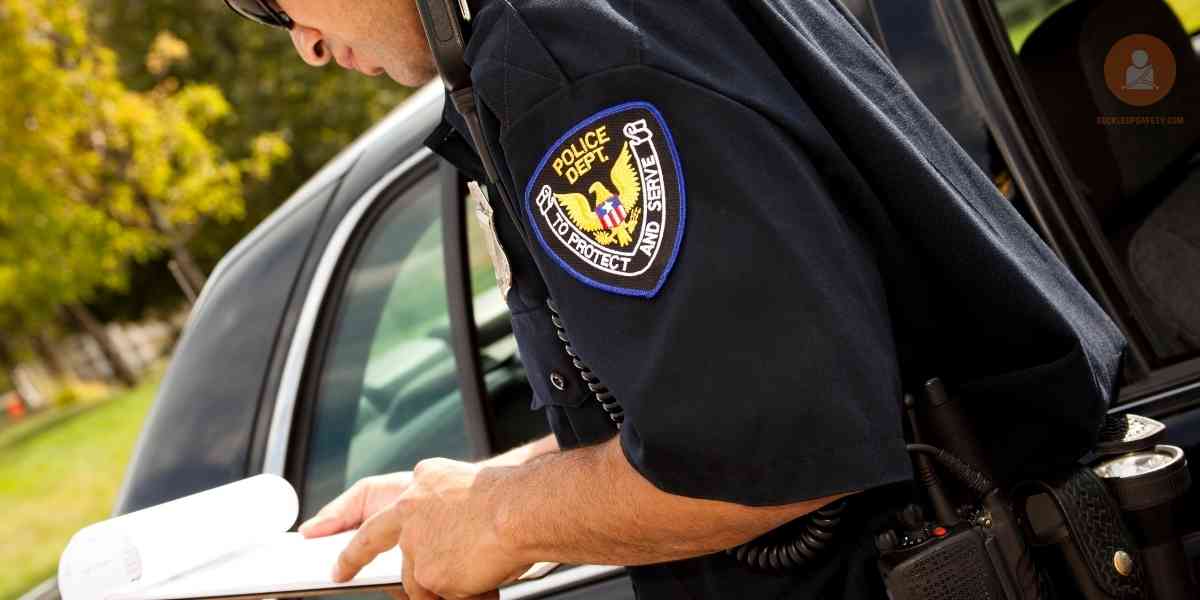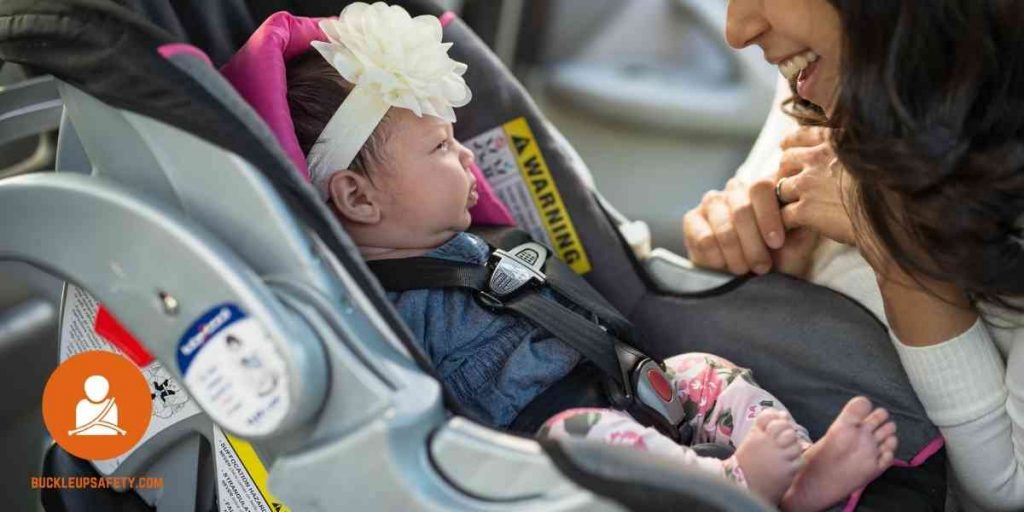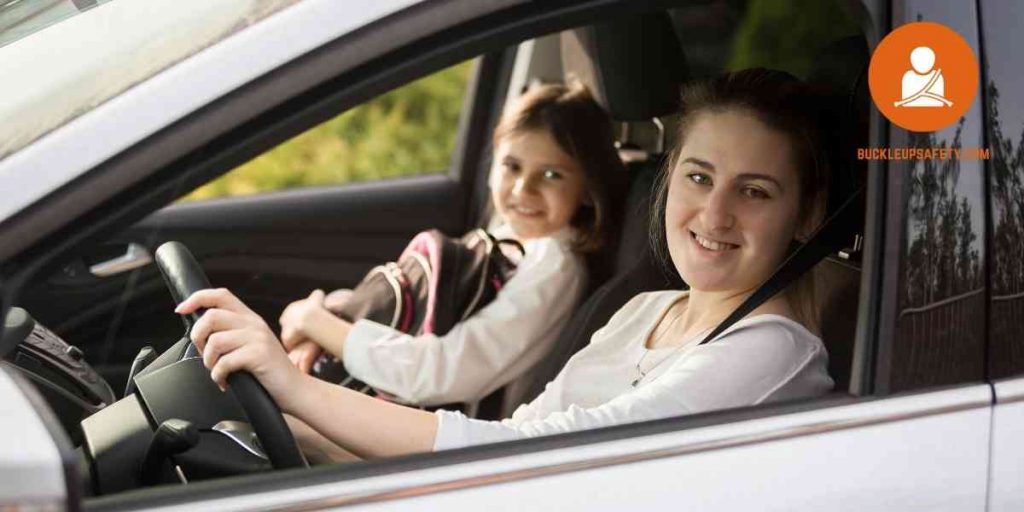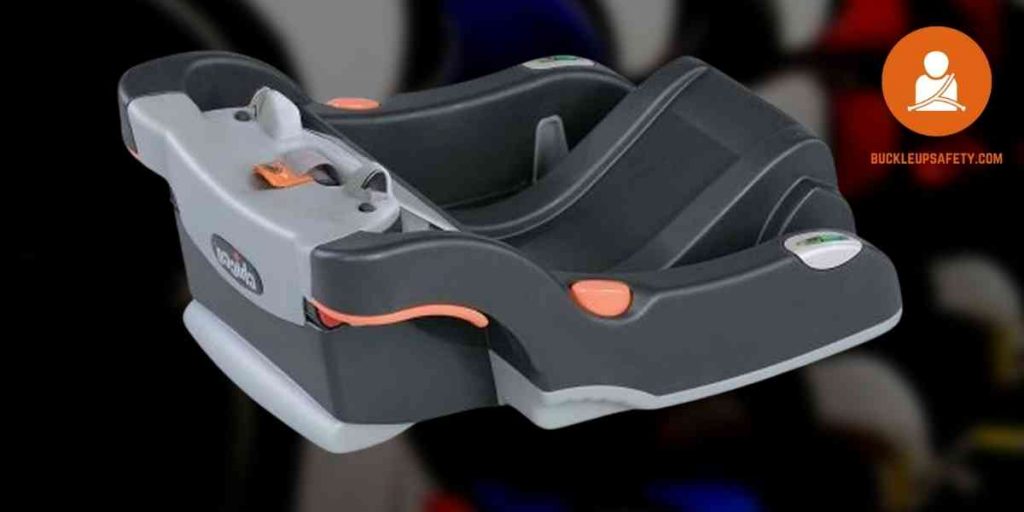Has a cop ever pulled you over while you are driving, and as they approach, they touch the back of your car?
Why do police touch your car during a traffic stop? The police touching or tapping the rear of your car when they are approaching your window can be because of various reasons. However, the two main reasons have to do with the safety of the officer and leaving evidence that shows they had interactions with you, the driver.
Why Do Police Touch Your Car
Police officers conduct millions of traffic spots in a year. Most of these traffic stops are uneventful, so much so they are seen as just routine traffic stops. However, there have been cases whey officers have been violently attacked, sustained serious injuries, or lost their lives.
Therefore it is safe to say a traffic stop can be riddled with unpredictable danger or violence towards police officers. The police officer touching the tail light or rear of the pulled-over vehicle is in a better position to assess the vehicle. So, why do police touch the back of your car at a traffic stop?

- Safety
- Leave evidence behind
- Elicit a reaction from the driver
Safety
A cop will touch the back of the car to ensure the hood is latched. This prevents any violent person from coming out of the hood and ambushing the officer. Also, it allows the officer to walk slightly off the side of the vehicle, which protects them against injuries in case the car reverses as a result of the driver not shifting the gear to park.
Leave Evidence Behind
Well, before the era of body cams and street cameras, touching the rear of the car allowed the officer to leave forensic evidence behind that ties them to the driver and the vehicle in case of an accident or assault. This is still commonly practiced to date.
Elicit A Reaction From The Driver
Police officers are trained to read body language. Touching the back of the car allows the officer to see how the driver reacts and assess the situation.
Read my detailed post on do car seat bases expire and why should you consider replacing them.
Why Do Police Officers Stop A Vehicle
It is common and legal for a police officer to stop you when driving. Below are the reason why an officer might stop you:
- Traffic violation
- If your vehicle matches the description of a car used to commit a crime
- Suspicion of driving under the influence
- If the officer feels you need help or warn you
- If you have any pending warrants
Traffic violation
An officer might stop because you committed a traffic offense. Various traffic laws are put in place to ensure safety for all people, and as a driver, you are expected to follow these rules. When you violate these rules, the police officer is obligated and well within his rights to pull you over for violation. For example, speed limit violation, skipping the red light, broken tail lights, among others.
If your vehicle matches the description of a car used to commit a crime
The officer might stop you if your vehicle matches a car that was used in a crime. If the vehicle description by a witness matches your vehicle, an office might stop or pull you over for a routine traffic stop in order to investigate.
Suspicion of driving under the influence
If the officer suspects that driver is driving under the influence of alcohol, they may stop you and administer a series of sobriety tests.
The tests determine if a driver is driving while impaired and may arrest you if they establish probable cause.
If the officer feels you need help or warn you
A police officer may stop you if they feel that you need help or to alert you of a dangerous situation.
If you have any pending warrants
Police may stop and arrest you if the state has issued a warrant for your arrest for being a suspect or for having committed a crime.
My guide on how tall do you have to be to sit in the front seat here.
What To Do When Police Officers Stop A Vehicle
When pulled over by the cops, it’s common to feel confused, anxious, panic, and wonder if you are in trouble. However, it is important to remain calm and do the following:
- Slow down and pullover
- Stay in the vehicle
- Put your hand where they can be seen
- Inform the police of weapons in the car
- Comply with the police officer’s request
- Sign the citation
- Ask for clarification
Slow down and pullover
When you notice the officer turn the emergency light or the siren on, make sure to slow down and pull over. Ensure you stop your vehicle way as far out of the traffic lane as possible.
Stay in the vehicle
Do not leave your vehicle unless the police officer asks you to step out of your vehicle for one reason or another.
Put your hand where they can be seen
Keep your hands where the police officer can see them, preferably on your steering wheel. Avoid making any sudden movements.
Inform the police of weapons in the car
If you have a weapon in the car, say a firearm, ensure to inform the officer and tell them of the location without reaching out or pointing.
Comply with the police officer’s request
In most cases, when an officer pulls you over, they will ask you to provide your license and car registration. Comply with the request and provide the documents. Answer any questions the officer might ask you truthfully without being argumentative and antagonizing.
Sign the citation
When issued a citation, do not argue and refuse to sign it. Most people make the mistake of assuming that if they sign the citation, then they are admitting they are guilty. However, this is not the case. It simply means you have complied.
Ask for clarification
If you fail to understand why the officer has pulled you over or issued you with a ticket, for instance, you have the right to ask for clarification. Be polite when asking for the information.
Read my post on when do babies outgrow infant car seats before it’s too late.
What Questions Do Police Ask At A Traffic Stop
When pulled over at a traffic stop, there are questions that the officer might ask. Although you are not required to answer with a few exceptions, it is up to the driver to co-operate. Here are some of the questions you might be asked:
- You might be asked to identify yourself in addition to providing your license and registration.
- An officer may question you about your whereabouts if they suspect you have committed an offense.
- The officer might ask if you have any weapons in the car.
- The officer can also ask to search your vehicle.
- The officer might question you about a violation.
- Officers also ask questions pertaining to welfare checks to ensure you are ok.
Must-Have Documents In Your car
It is very crucial to have the following three documents in the car:
- Valid driving license
- Vehicle registration
- Proof of insurance
Valid driving license
Drivers in the US are required to have a driver’s license or a permit to drive. Driving without a suspended, revoked license, or without a license is classified as a misdemeanor or an infraction, depending on your state. You are required to provide a valid license in case an officer pulls you over at a traffic stop. For international drivers, you can provide your international driving license or permit. The officer may also require international drivers to provide their passport with valid travel documentation, in most cases usually a valid visa.
Vehicle registration
Vehicle registration is a document issued by the state local vehicle registration agency. It shows that the vehicle has been registered since it is illegal to drive unregistered cars. It also shows who owns the car, for instance, you or a family member.
Proof of insurance
When pulled over at a traffic stop, you will likely be asked to show your insurance card and the insurance paperwork to ascertain that your vehicle has insurance. You would be breaking the law driving without insurance. Since it is classified as a misdemeanor in most states, it could lead to a fine, getting your license suspended or revoked, or jail time.
If the car is a rental, a rental contract can be used as a substitute for car registration and insurance paperwork. In some states, drivers may be required to provide an emission test certificate.
FAQ
Key Takeaways
To answer your question why do police touch your car is simply one of three things. They want to ensure your hood is latched, no one is coming out of it, and sneak behind them. Leaving their fingerprint to prove they got you if needed. And they want to see your reaction after all. So be cool if you don’t have anything to hide and let the officers do their job.



